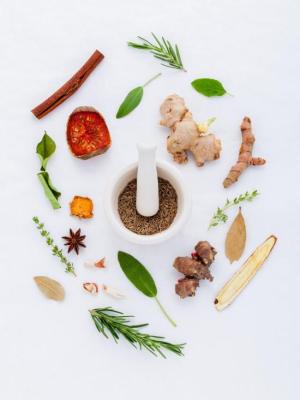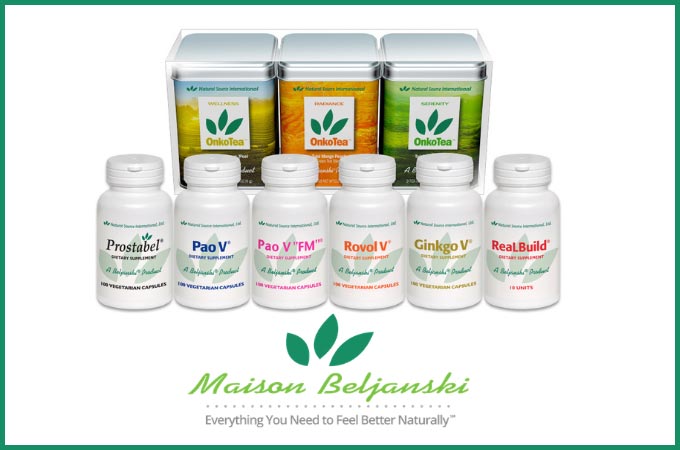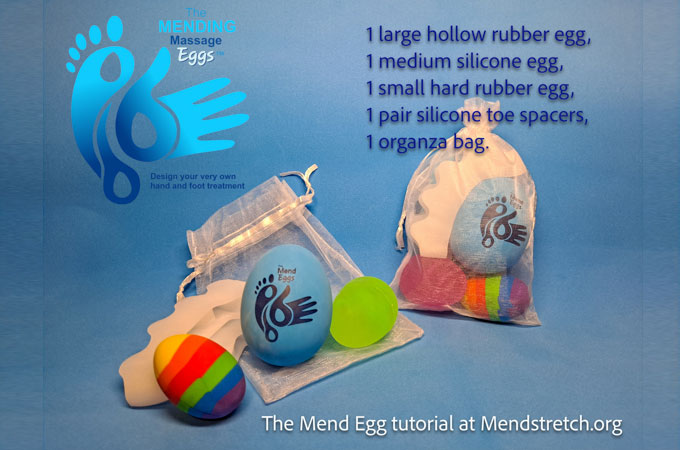5 Things to Help Reverse Autoimmune Disease
After treating thousands of patients with autoimmunity and other chronic health conditions, I have found that by addressing five common environmental and lifestyle factors we can help restore the balance of your immune system and often reverse your autoimmune disease.
If you're one of the 50 million Americans who suffers from an autoimmune disease, I want to tell you, as a functional medicine physician who specializes in treating autoimmune patients and as someone who has battled an autoimmune disease myself, that the most important thing to know about autoimmune diseases is that they can be reversed.
Contrary to what most conventional doctors say, an autoimmune diagnosis does not mean resigning yourself to debilitating symptoms that get worse and worse over time, or settling for a lifetime of harsh medications.
Your autoimmune disease didn't happen overnight. Sure, you may have a genetic predisposition towards autoimmunity. However, we now know about epigenetics and that our genes are not static and they can be both turned on and turned off by environmental and lifestyle factors. As a functional medicine physician, I work with my patients to find the root cause of their autoimmunity by uncovering these environmental and lifestyle factors that turned on these genes. After treating thousands of patients with autoimmunity and other chronic health conditions, I have found that by addressing five common environmental and lifestyle factors we can help restore the balance of your immune system and often reverse your autoimmune disease.
Here are the five strategies I use personally, and with my all of my patients, to address the root causes of autoimmune disease, restore balance to the immune system, help get people off medications, get symptom free, and reverse their disease.
1. Heal Your Gut
Your gut is your gateway to health. It houses 80 percent of your immune system, and without a healthy gut it is nearly impossible to have a healthy immune system.
In fact, we now know that having a leaky gut is one of the primary causes, and probably even a prerequisite, for developing an autoimmune disease. If your gut has become leaky it means the the tight junctions that usually hold the walls of your intestines together have become loose, allowing undigested food particles, microbes, toxins, and more to escape your gut and enter your bloodstream, causing a huge rise in inflammation that triggers or worsens any autoimmune condition.
Fortunately, the cells in your gut turn over very quickly, so you can heal your gut in as little as thirty days, by following functional medicine's 4R Program:
- Remove the Bad -- Remove inflammatory foods, toxins, and stress that damage your gut, as well as gut infections from yeast, parasites, or bacteria
- Restore the Good -- Replenish enzymes and acids necessary for proper digestion
- Reinoculate with Healthy Bacteria -- Make sure you have plenty of friendly bacteria to support your immune system
- Repair the Gut -- Provide the nutrients and amino acids needed to build a healthy gut lining
2. Optimize Your Diet
The foods you eat play a major role in two key components of autoimmune disease -- gut health and inflammation. Unfortunately, our modern diets are full of foods that have a negative impact on the two.
This includes the usual suspects of processed food and junk food, as well as pseudo health foods such as low-fat and gluten-free packaged foods, which are often loaded with sugar, additives, and preservatives. But even foods that we typically think of as cornerstones in a healthy diet, such as grains, dairy, legumes, eggs, corn, and soy, can contribute to leaky gut and inflammation. Gluten, in particular, is a primary culprit because it triggers the release of a chemical called zonulin, which tells the walls of your intestines to open up and is highly inflammatory.
I have seen first-hand, in myself and in my patients, that removing all of these inflammatory foods can dramatically reduce your inflammatory markers and ease, or even eliminate, symptoms of autoimmune disease.
If you're ready to see the change for yourself, try an elimination diet. Just remove all toxic and inflammatory foods for 30 days. Then, after your body has has had a break from the constant inflammation and your gut has healed, add foods back in one at a time to see which ones contribute to your symptoms and should be left out, and which ones you do fine with.
3. Reduce Your Toxic Burden
It's no secret that we're exposed to a huge number of toxic chemicals on a daily basis. Between the pollution in our air, the contaminants in our water, the pesticides in our food, and the cocktail of chemicals in our products, our bodies are barraged by toxins day in and day out.
These toxins aren't just being washed off or rinsed away, they are absorbed by your body. The Centers of Disease Control found traces of 212 different chemicals in a group of people that they studied over the course of five years, and that's only the chemicals they tested for!
We don't yet know what effect each of these chemicals has on our bodies, as there are thousands of chemicals in regular use and the research is still early. However, we do know that having a higher toxic burden puts you at greater risk of developing an autoimmune disease, and that reducing your toxic burden helps to reverse autoimmune disease.
When it comes to reducing your toxic burden, you have two main goals, prevention and detoxification. You can prevent or minimize toxin exposure by eating organic foods, minimizing your use of plastic, filtering your air and water, and using toxin-free body products. I realize that we can't all live in a bubble, so my personal strategy is to keep my home and office as toxin-free as possible, so that I have more leeway when I'm out in the world.
The second goal, detoxification, involves supporting your detox pathways by getting plenty of the vitamins and nutrients needed by your liver (where most of your detoxification occurs), staying hydrated, and doing activities to make you sweat, such as exercising or using an infrared sauna.
4. Heal Your Infections
Another key factor that can play a role in autoimmune disease is infections. Research has linked a number of viral and bacterial infections to autoimmune disease, including Epstein-Barr (the virus that causes mono), Herpes Simplex 1 and 2, E. coli, and more. Scientists aren't sure exactly how these infections cause autoimmune disease, and it's likely that a few different mechanisms are involved since our immune systems are so sophisticated, but there is a well-documented correlation between the two.
Your doctor can run a blood test to determine if you have any latent infections that might be contributing to your autoimmune disease. If you have a bacterial infection, you can take antibiotics to get rid of your infection. If you have a viral infection you can lighten your viral load by strengthening your immune system to prevent infectious flare ups that can worsen autoimmune conditions. This includes avoiding immunosuppressant drugs (which are often prescribed to autoimmune patients), maintaining a healthy gut, and getting plenty of vitamin D and vitamin C.
5. Relieve Your Stress
The last underlying cause you can tackle to reverse your autoimmune disease is one that is very important, but can be one of the most challenging. It's relieving your stress, specifically the chronic stress that most of us have accepted as an everyday occurrence.
Stress has a twofold effect on your immune system. First, it revs up your immune system and produces a wave of inflammation, which makes sense since our immune systems originally evolved to face stressors like attacks, injury, and famine. Then, it suppresses your immune system because your body knows that sustaining a high level of inflammation is dangerous.
The trouble is that most of us don't experience stress in the form of temporary events, we are much more likely to experience chronic stress that sends your immune system on a rollercoaster of revving up and slowing back down over and over again. If that sounds exhausting to you, your immune system thinks so too! In fact, your immune system often responds to chronic or escalating stress by triggering or worsening an autoimmune condition.
Whether it's through meditation, exercise, prayer, art, or any other activity you enjoy, relieving your stress is incredibly helpful in reducing your inflammation and giving your immune system a well-deserved break, so that it can get back on track.
Everyone manages stress differently and there is no perfect way to handle it. The key is to figure out what strategies work best for you. Some of my favorites are going on a walk with my husband and dog, taking a relaxing epsom salt bath, and doing deep breathing exercises.

























